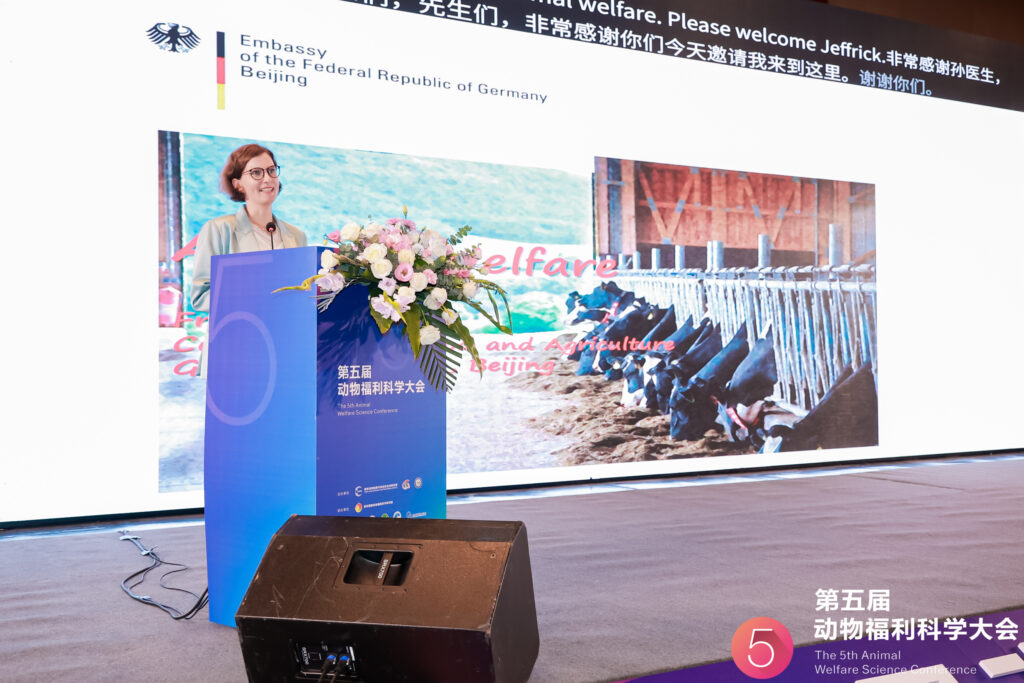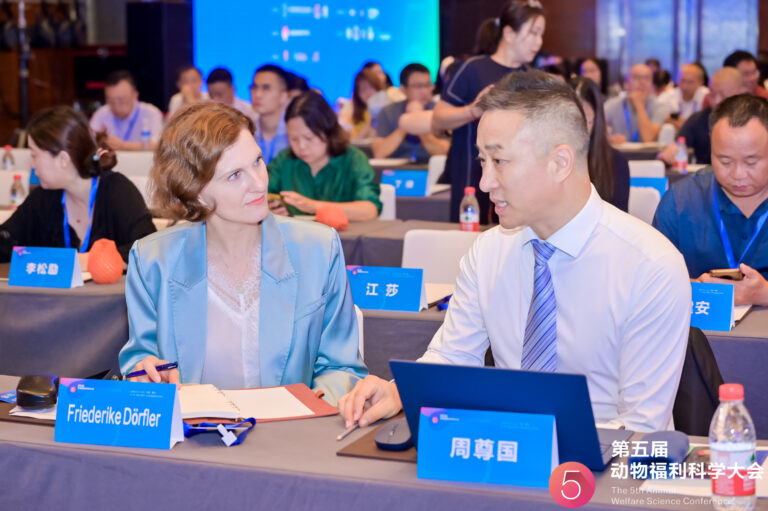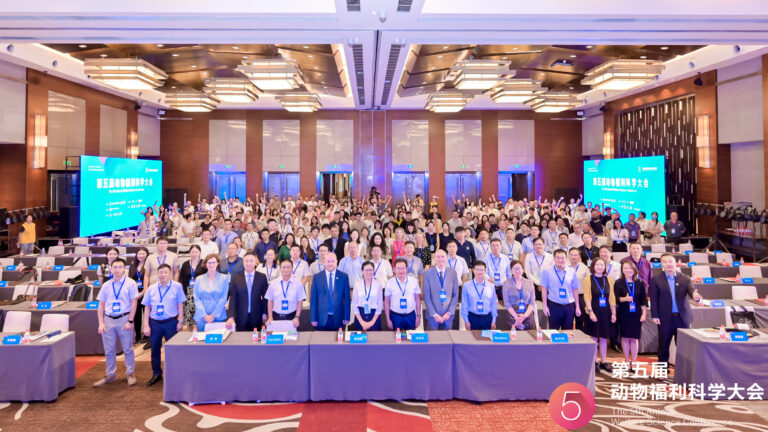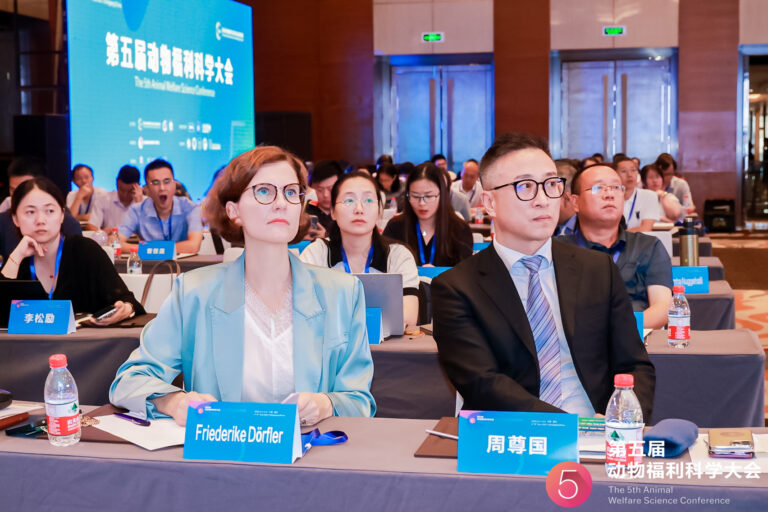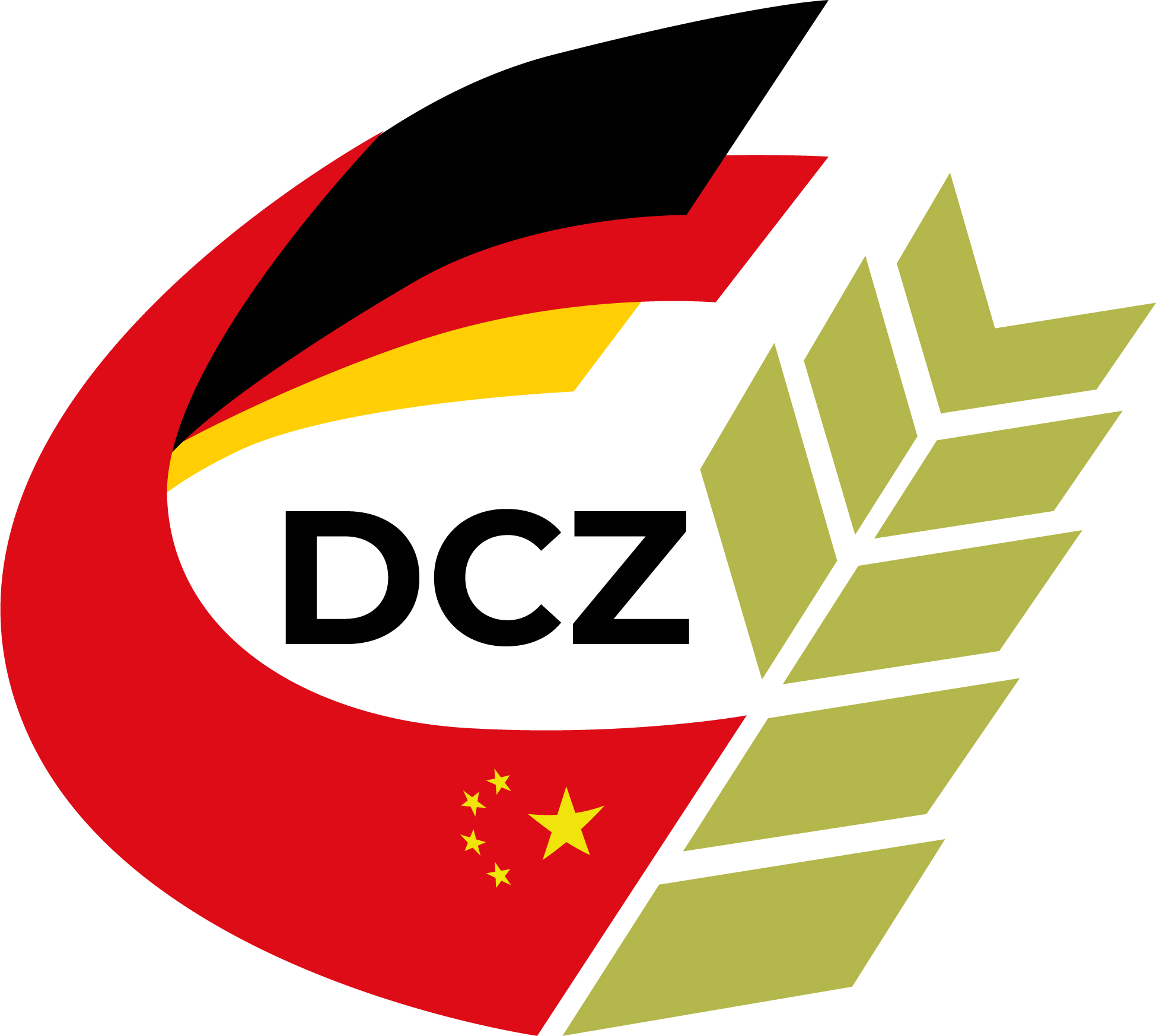The Fifth Animal Welfare Science Conference was held in Chongqing on 5 September. The conference with over 350 participants was hosted by the China Animal Health and Food Safety Alliance. German Agricultural Counselor Friederike Dörfler attended the event and gave a speech, introducing Germany’s perspective on the topic of animal welfare.
Experts from universities and (international) organizations such as FAO, OIE, the Royal Society for the Prevention of Cruelty on Animals, Compassion in World Farming, and World Animal Protection talked about different aspects of animal welfare: animal health, food safety, as well as compassion and respect for farm animals.
It became clear that productivity and animal welfare are not mutually exclusive. But there is still a long way to go to raise awareness for farm animal welfare in China. In Europe and Germany, by contrast, animal welfare is a hot topic, with the wider public pushing governments for improvement.
The German Agricultural Counselor emphasized in her speech that all of us bear responsibility towards living beings. She quoted the famous Mahatma Gandhi: “The greatness of a nation and its moral progress can be judged by the way its animals are treated.”
She also presented the commitment of the German Federal Ministry of Food and Agriculture for more animal welfare in livestock farming, emphasizing initiatives such as the ban on killing male chicks in laying hen production and the ban on piglet castration without anesthesia. Regarding piglet castration, the German animal protection law is one of the most ambitious laws within the EU, Friederike Dörfler noted.
To make farmers’ investments in animal welfare more visible to consumers, the Federal Ministry has introduced a mandatory animal welfare label. As a first step, the Act sets out regulations for fattening pigs, but it is intended to be rapidly expanded to include other animal species as well as other stages of the production chain. The aim is for German consumers to see at a glance how farm animals were reared – and pay an appropriate price.
This is an example on how governments can create an environment in which investing in more animal welfare is possible. The German Government will support farmers in the transition towards more animal welfare, environmental protection, and climate change mitigation, the Agricultural Counselor emphasized in her speech.
She also elaborated on recent institutional efforts in Germany to improve animal welfare. Germany’s first Commissioner for Animal Welfare was recently nominated by Agricultural Minister Cem Özdemir. The Commissioner is politically and professionally independent and will advise and support the Federal Ministry on issues relevant to animal welfare in the form of recommendations and statements.
Friederike Dörfler also presented the Sino-German Cooperation Project on Sustainable Animal Husbandry and Breeding, which entered its third phase in January 2022. Since it was established in 2010, the project has focused on sustainable animal breeding and husbandry in pig and cattle production, with environmental and climate compatibility increasingly in the focus. Currently, the project works with 15 demonstration farms (ten cattle and five pig farms) in Hebei, Shandong, Shanxi, and Henan.
Author: Friederike Dörfler




